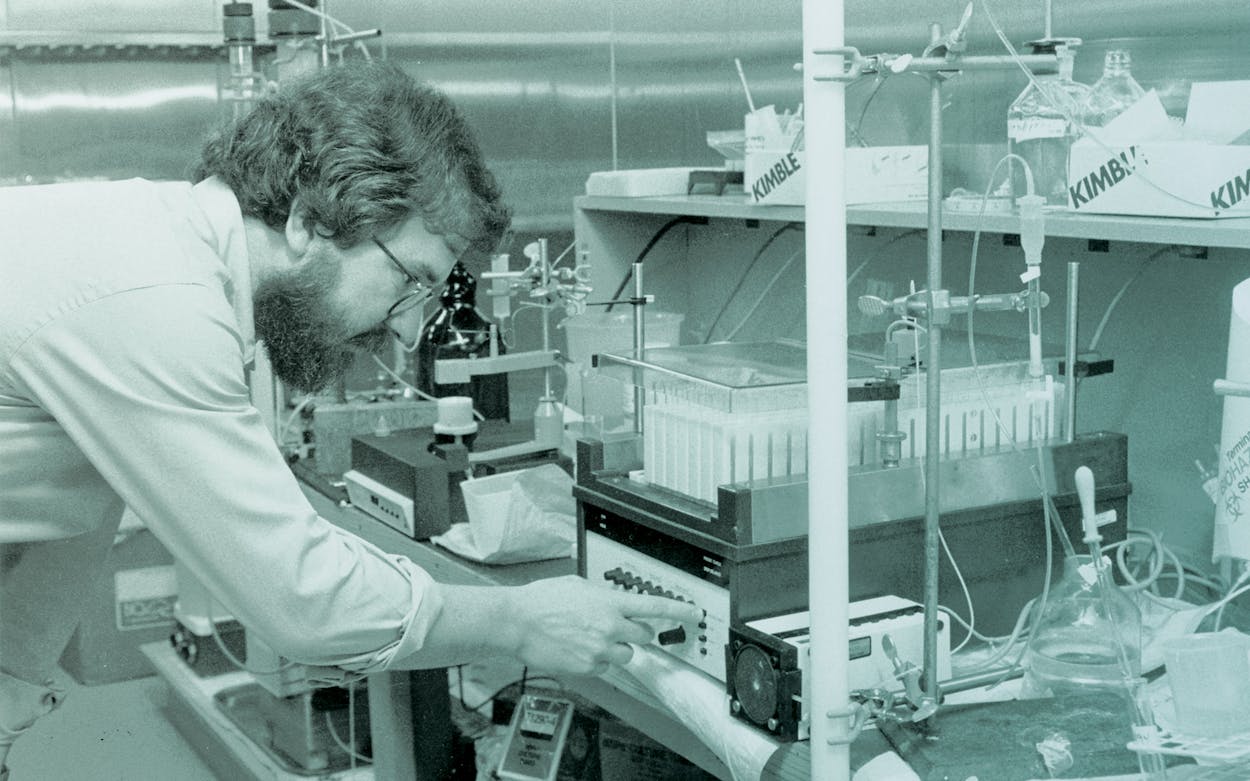Before this week, Dr. James P. Allison, the chairman of immunology at the University of Texas M.D. Anderson Cancer Center, hadn’t thought that winning the Nobel Prize in physiology or medicine was out of the realm of possibility. Allison has had a legendary career, after all, and his work helped pioneer an entire new field of cancer treatment known as immunotherapy, which enables the body’s own T cells to kill malignant tumors.
But when Allison’s son called him with the news on Monday morning, he was still stunned. It had been a long journey to such an apex. After growing up in the South Texas town of Alice, where he battled his high school’s administrators for the right to study evolution, Allison spent decades on a lonely quest that many other scientists considered quixotic. He finally triumphed when his discoveries led to a series of FDA-approved drugs.
Allison, who is now seventy, may have become a famous scientist, but he still has a scruffy small-town charm. When I first met him two years ago to write a cover story for Texas Monthly about his life and work, he’d just returned from the Vatican and, not long before, had played harmonica on stage with Willie Nelson. “Someone asked me which was more exciting, playing with Willie or meeting the pope,” Allison told me. “That’s not a very good question.”
Texas Monthly: A couple years ago, you told me that playing with Willie Nelson was more exciting than meeting the pope. Now that you’ve won the Nobel Prize, which was more exciting: playing with Willie the first time or hearing that you’d won?
Jim Allison: Well, again, that’s a difficult question, but I must say that getting the Nobel Prize is marginally better.
TM: Your work has been honored by many different groups. How is this award different?
JA: Well, this is the pinnacle. This is the absolute high. It still hasn’t sunk in completely. You know, this is something where I just kept thinking, “Well, this is going to happen one day,” and every year I’d try to blow it off. Then it would come and it wouldn’t happen. I’d say, “OK, there’s next year.” But this year, my son was watching TV and saw it and called me. Apparently, the Nobel people had trouble finding me. This morning [the first day after he won the Prize] I woke up and I said, “It’s not going to be next year. This is it.”
TM: I saw a photo of you celebrating with a bunch of your old friends and family in a hotel room. How did that happen so fast?
JA: Word got around. There was a conference [the Fourth International Cancer Immunotherapy Conference] that was put on by the American Association of Cancer Research and the Cancer Research Institute, and some other organizations that I’ve been associated with for a long time. [His wife Padmanee Sharma] got the highest award that the Cancer Research Institute gives, the Coley Award, so I was accompanying her.
TM: You won the award with the Japanese scientist Tasuku Honjo, who made discoveries that led to other immunotherapy drugs. Do you know him?
JA: Yeah, I’ve met him. He actually came to Austin in 1983, I think. He wanted to collaborate some on T cells. He’s a giant in the field of immunology.
TM: It’s amazing to think of you two in Austin in the early 1980s, talking about T cells, and then winning the Nobel Prize together in 2018.
JA: It is really surprising.
TM: Who have you heard from over the last two days?
JA: Joe Biden called me. I talked to him for a while. I got an email from Katie Couric. And then Mickey Raphael, [Willie Nelson’s longtime harmonica player], said, “Me and Willie say hello.”
TM: So what now?
JA: That’s one of the issues I’m still digesting—what do I do next? Keep working and try to do it better.







